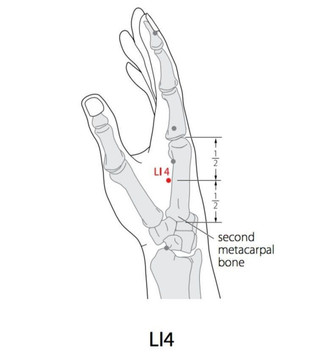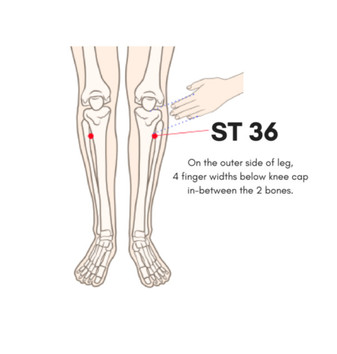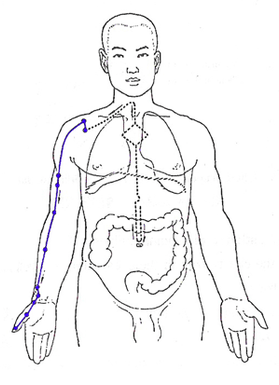Quarantine Life: Wellness Hacks from an Acupuncturist
- Snow Xia, L.Ac

- Apr 15, 2020
- 4 min read
Updated: Apr 24, 2020
Most of us are anxious about our financial, emotional, and physical well-being in this global pandemic. COVID19 has changed life as we know it. While some friends are frustrated with the overwhelming challenges of WFH; others are unable to work, and wrestling to maintain a sense of purpose.
At the beginning of the quarantine, I was trying to stay productive by taking continuing education webinars and self-improvement courses. Soon I realize such attempts are futile when I feel emotionally consumed by current uncertainties, while struggling to maintain any sense of normalcy. After the initial two weeks, I finally gave up on productivity, and decided to focus on being kind to myself. For me, this means allowing myself to feel sad and process those negative feelings, picking up a new hobby of growing oyster mushrooms, and watching a movie at 2pm and not feel bad about it.
As part of the Burnout Generation (a brilliant term coined by author Anne Helen Petersen), this quarantine has given me a new perspective on productivity and self-love. Pampering ourselves with a luxurious spa day is nice, but a deeper sense of self-love comes from being kind towards ourselves. For instance, practicing non-judgement towards our feelings, and allowing the time we need to feel whole again.
So far, this has been a freeing experience. I allowed myself a break from productivity to process my anxious thoughts, time to self-soothe, and enjoy the simple pleasures of home life.
I invite you to take this time to show yourself kind loving. Here are some wellness routines I have included in my new quarantine life to remind myself just that.
ImmuniTea
Consider making tea as a meditative daily ritual. As most immune-boosting herbal formulas are out of stock, I came up with an easy tea recipe that makes use of simple ingredients in the pantry. This recipe is based on a formula found in the TCM classic text "Shang Han Lun". The ingredients can help strengthen the Lung Meridian, boost immunity and improve gastrointestinal functions.
* Best taken in the morning or afternoon after a meal.
* Contraindications: frequent heat sensation, night sweating, swollen throat, sore throat, fever, ulceration.
Ginger (1 part sliced) Ginger benefits the lungs and stops cough. It warms the stomach and aids in digestion.The spicy compound in ginger, called 'gingerol', has many health benefits such as anti-inflammatory, antioxidant, antiviral, anti-cancerous and anti-nausea.
Licorice Root (1 part chopped) Licorice is an adaptogen that tackles adrenal insufficiency. It is an excellent antiviral, anti-fungal, respiratory expectorant and treats gastrointestinal disorders. It boosts immunity by increasing levels of interferon, a key component that triggers immune response to interfere with viral replication. Licorice also contains glycyrrhizic acid that seems to inhibit growth of influenza virus.
Lemon (juice from 1/2 a lemon) Needless to mention here, vitamin C in lemon is a powerful antioxidant that boosts the immune system and has antiviral and antibacterial properties.
If Licorice Root is unavailable, you can substitute with Cinnamon. Add Astragalus if this is available to you.
Cinnamon This herb invigorates circulation and warms the body. It is an antioxidant, anti-inflammatory, anti-diabetic, anti-microbial, and immunity-booster. Note Cinnamon branch and Cinnamon bark have slightly different medicinal properties in TCM, and it is more appropriate to use Cinnamon branch here if available to you.
Astragalus Root (optional) It is a powerful adaptogen that is high in antioxidants and boosts immunity. Astragalus works in multiple ways to stimulate the immune system, such as increasing white blood cells production and stimulating natural killer cell activity.
Instruction: Bring ingredients to a boil then simmer for 10-20mins. Squeeze lemon juice directly into tea cup before drinking, as heat destroys Vitamin C. Add raw honey to taste.
Acupressure
Acupressure is a wonderful daily routine to boost the immune system. LI4 and ST36 are two common points I use in clinic to do just that. Both points circulate the blood, and boost the Qi to improve immunity. GV20 improves focus, clarity and calms anxiety. Massage these points with your fingers, a few minutes each, until the points produce some pressure or a tender sensation.
Lung Meridian Stretches
As a big proponent of yoga, I truly believe daily meridian stretches can improve circulation and remove blockage in the meridians. Now is a good time to focus on strengthening the Lung meridian to boost respiratory health and immunity. To read more about meridian stretches, see here.
The foundational concept in TCM is that "Qi is the commander of blood"; when Qi moves, blood follows. Put simply, when Qi is strong, blood circulation improves, which allows for optimal metabolic activities in the body. The Lung meridian governs respiration (Qi) and skin functions, hence so closely related to our defense system and metabolism.
To understand how these stretches can benefit the Lung meridian, we have to first trace the pathway. The Lung meridian begins internally at our solar plexus, the source of Qi and blood. The channel runs through the lung into the throat, and exits to the superolateral aspect of the chest where LU 1 acupuncture point begins. The external meridian then runs down the medioanterior aspect of the arm and ends at the radial side of the thumb. Beginner poses of Upward-Facing dog and Fish pose, to the more advanced Camel pose or Cow Face pose can effectively stretch this pathway. When you are in each of these poses, slow down breathing and take in deep breaths to fill up the lungs. For example, fish pose expands the rib cage and widens the bronchial tubes, which opens the lungs to enhance deeper respiration, allowing extra oxygen to enter.
















Comments